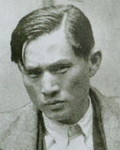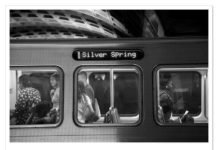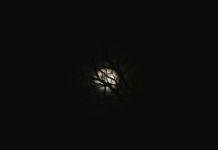https://youtu.be/dRiJRnn4hqg
백정기
동학의 땅에서 태어난 근본이라 그러했을까
천석꾼의 사위로 집단속하며 누릴 일이지
일경을 두들겨 팬 19살에
도쿄의 일왕 살해를 실패하고
북경의 스승과 동지를 만나 한솥죽을 끓이다
스승 우당의 암살범이자 밀정 끝끝내 찾아내 자백받고 교살
떠나고 떠나 만난 의혈단이 노선을 틀자
1.200km를 홀로 걸어 당도한 김구의 집에서
상해 서쪽 철공장과 안공근이 내어준 점방에서
밤새 아이스크림을 저었고
전차 매표원으로 생계를 떠안은 그는
동지들의 가장이었다
홍구공원 천장절 경축식장 비는 내리고
기다리던 왕아초의 입장권은 끝내 오지 않았다
장내 윤봉길의 성공으로 그나마 안도했으나
터트리지 못한 또 하나의 도시락 폭탄이 있었으니
열사의 뇌관에 터진 절통함이여!
폭탄 두 개가 다 터졌더라면 역사는 좀 달라졌을까
겨드랑이에 과자 봉지처럼 도시락 폭탄을 끼고
땅콩을 까며 걷던 여여의 육삼정 앞
밀정은 투사보다 얼마나 더 많았던가
아리요시 공사 암살 계획도 밀고로
결국 수포로 돌아가고 체포되어
“일본말을 모르는 것은 아니지만 우리의 행동 목적과 그
의의를 진술하는 데는 조선말과 비교할 수 없으므로 조선말
통역사를 입회시켜줄 것을 요구한다”
소외된 동지를 돌보다 전염된 폐결핵으로
조국의 독립보다 먼저 찾아와 빼앗긴 붉은 숨
유산이라곤 20년간 고향집 시렁에 먼지 쓰고 있던
일본어판『세계사상대전집』몇 권
그마저도 일경이 불질러 버렸고
고단 여사가 보관한 편지 한 장이 전부라
독립된 조선 땅 어디든 무덤에 꽃 한 송이 놓아달라던
나가사키 형무소에 묻힌 유언대로 효창공원에 누웠으니
그 간절함으로 스러져간 익명의 투사들이여!
그들의 후손들이여!
그리고 밀정의 후손들이여!
백만 년을 살아도 염치없는 아나키스트 나는
그의 장렬한 고독과
거칠고 거친 유랑을 견뎌낸 뜨거운 심장에게
일천한 밀서 한 장을 올린다
Baek Jeong-gi
Was it because he was born in the region of the founding of Donghak?
Instead of caring for his household and enjoying life as the son-in-law of a wealthy landlord,
He, after failing in his attempt to assassinate the king of Japan in Tokyo,
At the age of 19, when he beat up a Japanese policeman,
Shared the same pot of gruel with his teachers and comrades in Beijing,
And punished the spy and assassin of his teacher Udang, after tracking him down with much effort and receiving a full confession from him.
When the Righteous Blood Group, which he had joined after a long journey, changed its tactics,
He stirred ice cream night after night
At the independence leader Kim Gu’s house, where he arrived after a 1,200-kilometer solitary journey on foot,
At the ironworks, and at the store provided by An Gong-geun in western Shanghai,
And worked as a booking clerk of streetcars, to provide for the livelihood of his comrades.
He was their breadwinner.
It rained on the stage of the Japanese Emperor’s Birthday celebration in Hongkew Park.
And Wang Yaqiao, whom he had eagerly been waiting for, because of a promised event pass, did not arrive in the end.
Although Yun Bong-gil’s success made him feel better,
As there was another bomb that he could not throw,
How bitterly his pain exploded!
Would history have been different if both bombs had exploded?
In front of Yuksamjeong, on the road that he walked,
While munching on peanuts, with a lunch-box-shaped bomb under his arm,
How many more spies than fighters there were!
Due to an informant, another plan of his to assassinate Minister Ariyoshi
Also failed, leading to his arrest.
“Although I can speak Japanese, it cannot compare with Korean
In describing the goals and significances of our actions,
I demand that you provide an interpreter for the trial.”
His red breath was taken from him before the arrival of Korean independence
By the tuberculosis he caught while taking care of his isolated comrade.
His only legacies included a few volumes of the Japanese edition of the Complete World Thoughts
Gathering dust for 20 years on a shelf in his house in his hometown,
Even that was burned down by the Japanese police, so
All we have today is a single letter kept by his wife Madam Go Dan.
He was laid in Hyochang Park, and according to his will, buried in the Nagasaki Prison,
A flower should be placed in front of his tomb wherever it was in independent Korea,
Oh, anonymous fighters who disappeared with their ardent wishes!
Oh, their descendants!
And the descendants of Japanese spies!
I, a shameless anarchist even if I could live a million years,
Offer a short, secret letter
To his heroic solitude
And his passionate heart that endured such rough and jagged wanderings.
Donghak (Eastern Learning): A popular religion founded in Korea during the mid-19th century by integrating the doctrines of Confucianism, Buddhism, and Taoism. [Translator’s Note]
Translated by Seung-Hee Jeon (literary critic and translator, editor of Asia: A Magazine of Asian Literature)











